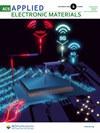关于使用电子健康数据支持卫生专业人员反思性实践的社区观点
IF 4.3
3区 材料科学
Q1 ENGINEERING, ELECTRICAL & ELECTRONIC
引用次数: 0
摘要
电子健康记录和其他临床信息系统在提供医疗服务方面发挥着至关重要的作用,通常用于病人护理以及健康促进和研究。政府机构和医疗保健机构正逐渐将重点转移到如何利用这些数据系统进行二次利用,如反思性实践、专业学习和持续专业发展。虽然围绕医疗专业人员在使用临床信息系统支持其反思性实践方面的态度开展了大量研究,但有关消费者对这些数据系统的态度以及他们希望如何与这些系统互动的研究却很少。本文所述的研究旨在通过探讨社区对二次使用电子健康数据促进医疗专业人员学习和实践反思的看法,填补文献中的这一空白。研究采用定性方法,通过半结构化访谈收集数据。访谈通过电话和录音进行,然后转录成文本进行分析。对数据进行了反思性专题分析。15 名澳大利亚人同意参加访谈。对访谈数据的分析产生了五个主题:(1) 对健康专业人员注册和专业学习的了解;(2) 电子健康数据的二次使用;(3) 能够将电子健康数据用于健康专业学习的因素;(4) 将电子健康数据用于健康专业学习所面临的挑战;(5) 在同意将电子健康数据用于健康专业学习方面的期望。澳大利亚人普遍支持卫生专业人员使用电子健康数据支持反思性实践和学习,但也指出了以这种方式使用数据所面临的几项挑战。本文章由计算机程序翻译,如有差异,请以英文原文为准。
Community perspectives on the use of electronic health data to support reflective practice by health professionals
Electronic health records and other clinical information systems have crucial roles in health service delivery and are often utilised for patient care as well as health promotion and research. Government agencies and healthcare bodies are gradually shifting the focus on how these data systems can be harnessed for secondary uses such as reflective practice, professional learning and continuing professional development. Whilst there has been a presence in research around the attitudes of health professionals in employing clinical information systems to support their reflective practice, there has been very little research into consumer attitudes towards these data systems and how they would like to interact with such structures. The study described in this article aimed to address this gap in the literature by exploring community perspectives on the secondary use of Electronic Health Data for health professional learning and practice reflection. A qualitative methodology was used, with data being collected via semi-structured interviews. Interviews were conducted via phone and audio recordings, before being transcribed into text for analysis. Reflective thematic analysis was undertaken to analyse the data. Fifteen Australians consented to participate in an interview. Analysis of interview data generated five themes: (1) Knowledge about health professional registration and professional learning; (2) Secondary uses of Electronic Health Data; (3) Factors that enable the use of Electronic Health Data for health professional learning; (4) Challenges using Electronic Health Data for health professional learning and (5) Expectations around consent to use Electronic Health Data for health professional learning. Australians are generally supportive of health professionals using Electronic Health Data to support reflective practice and learning but identify several challenges for data being used in this way.
求助全文
通过发布文献求助,成功后即可免费获取论文全文。
去求助

 求助内容:
求助内容: 应助结果提醒方式:
应助结果提醒方式:


